Balance
The Power of Three
Integrating Three Parts of Self
To feel whole, we must nurture and align three fundamental aspects of ourselves— Mind. Body, Spirit. Each influences the others, shaping our thoughts, emotions, and actions.
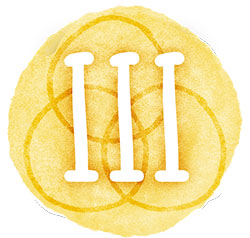
Core-concepts
Section 3
The concept of a trinity appears across various philosophies and belief systems, representing the balance between three essential forces. In our exploration of balance, we look at several trinities: mind, body, and spirit; past, present, and future; thoughts, emotions, and actions; and the head, heart, and gut. Each set offers a different perspective on how to align the many layers of our being, leading to a great feeling of wholeness.
Mind, Body, Spirit
Achieving balance within this trinity involves nurturing and harmonizing these three aspects. It may involve practices like meditation for the mind, exercise and nutrition for the body, and spiritual or mindfulness practices for the spirit.

1. Mind
Your mind holds your thoughts, emotions, and beliefs. It’s where your awareness and clarity take shape. A healthy mind gives you resilience and emotional strength.
 Practice
Practice
- Meditation and Mindfulness: Quiet the mind through meditation or mindfulness to reduce stress and heighten self-awareness. Journal your reoccurring thoughts.
- Positive Thinking: Focus on shifting negative thoughts and build optimism through gratitude
- Learning and Growth: Engage in lifelong learning, pursue your interests, and challenge your intellect to keep your mind active and sharp.
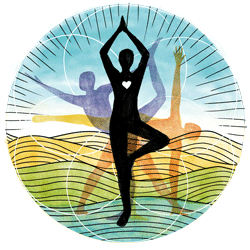
2. Body
Your body reflects your physical health and vitality. Keeping it strong, nourished, and energized allows you to show up fully in life.
 Practice
Practice
- Exercise: Practice a consistent cardio, strength, and flexibility routine.
- Nutritious Diet: Meal Plan for a balanced diet rich in fruits, vegetables, lean proteins, and whole grains to provide your body with essential nutrients.
- Rest & Recovery: Ensure you get enough sleep and rest to support physical recovery and overall health. .
- Hydration: Drink plenty of water to stay hydrated, which is crucial for bodily functions.
- Stress Management: Try grounding yourself barefoot into the Earth, listening to binaural beats, smelling fresh trees or flowers, deep breathing, acupressure mats and rollers to relieve stress in your body.
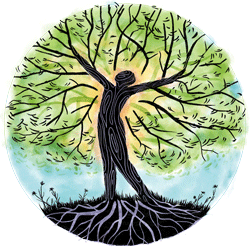
3. Spirit
The spirit is your inner self, your core values, and what connects you to a sense of purpose. It’s the part of you that seeks fulfillment and peace.
 Practice
Practice
- Exploration of Beliefs: Reflect on your beliefs, values, and purpose in life. Explore different spiritual or philosophical paths to find what resonates with you.
- Connection with Nature: Spending time in nature can help you feel more connected and grounded.
- Meditation and Contemplation: Engage in practices that promote inner peace and self-discovery, such as meditation, prayer, or journaling.
- Acts of Kindness and Service: Acts of kindness and helping others can nurture a sense of purpose and connection to humanity.
When one part of this trinity is nurtured, the others benefit. Movement strengthens the mind, clarity fuels the spirit, and inner peace supports the body.
 Read
Read
 Quotes
Quotes
- "Your mind, emotions and body are instruments and the way you align and tune them determines how well you play life." - Harbhajan Singh Yogi
- "A balanced intellect presupposes a harmonious growth of body, mind and soul." - Mahatma Gandhi
- "Health is a state of complete harmony of the body, mind and spirit. When one is free from physical disabilities and mental distractions, the gates of the soul open." - B.K.S. Iyengar
Supporting Frameworks
Once we establish the foundation of Mind-Body-Spirit, we can refine balance further through supporting trinities.
Thoughts, Emotions, Actions
Our thoughts fuel emotions, which shape actions. To live intentionally, these must be in harmony.
Achieving balance means aligning your thoughts, emotions, and actions in a way that supports our values and goals.
 Question
Question
- Are my thoughts aligned with my values and goals?
- How do my emotions influence my decisions?
- Do my daily actions reflect my long-term goals?
Past, Present, Future
Balance means learning from the past, living fully in the present, and preparing for the future—without getting stuck in any one place.
 Reflect
Reflect
- What future goals am I working toward, and do they reflect my true desires?
- Am I holding onto anything from the past that no longer serves me?
- Am I fully engaged in the present moment?
- How do I balance excitement for what’s ahead with gratitude for where I am now?
The Three Brains
We make decisions from three centers—intellect (head), emotions (heart), and instincts (gut). Ideally, these work together, but one is often dominant while another is repressed.
The Head
Intellectual Analysis
Observation | Logic | Reasoning | Goals | Studying | Language
- When faced with a decision, start by gathering relevant information, analyzing facts, and considering the logical implications.
- Take time to think critically and rationally about the options available to you.
- Consult experts or seek advice from knowledgeable individuals when necessary.
The Heart
Emotional Awareness
Emotions | Memories | Vision | Dreams | Values | Expression
- Tune into your emotions and feelings about a decision. Consider how different choices align with your values, desires, and passions.
- Recognize that emotions can provide valuable insights into what truly matters to you.
- Allow yourself to feel and express your emotions without judgment.
The Gut
Intuitive Listening
Health| Self-Care | Intuition | Instinct | Action/Doing | Fear
- Trust your gut instincts or intuition. Sometimes, your initial gut feeling can provide valuable guidance.
- Practice intuition-enhancing activities like meditation, journaling, or spending time in nature to strengthen your intuitive abilities.
 Question
Question
- Which of my brains is the strongest?
- Which brains do I need to put more energy towards?
 Read
Read
Self, Others, Universe
We exist as individuals, in relationships, and as part of a larger world. Balance means nurturing all three connections.
 Question
Question
- Am I giving myself enough care and attention?
- Are my relationships mutually supporting?
- How do I connect with something bigger than myself- through nature, creativity, or purpose?
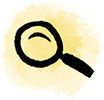
Resources
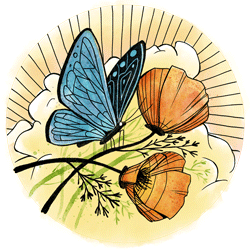






 Read
Read Quotes
Quotes Question
Question Watch
Watch